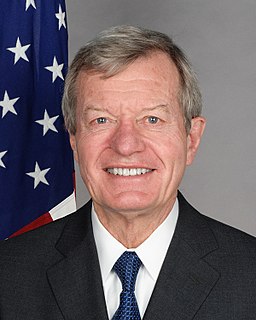A Quote by Neil Bush
China is not an economic enemy or existential national security threat to the United States.
Related Quotes
National security is a really big problem for journalists, because no journalist worth his salt wants to endanger the national security, but the law talks about anyone who endangers the security of the United States is going to go to jail. So, here you are, especially in the Pentagon. Some guy tells you something. He says that's a national security matter. Well, you're supposed to tremble and get scared and it never, almost never means the security of the national government. More likely to mean the security or the personal happiness of the guy who is telling you something.
If Israeli intelligence that has been shared with the United States - whether the National Security Agency, the C.I.A., the Defense Department, or the White House - is not safely guarded, Israel faces a major threat to its security. Cooperation with America's agencies is deeply embedded in Israel's intelligence community.
Actually, the phrase "national security" is barely used until the 1930s. And there's a reason. By then, the United States was beginning to become global. Before that the United States had been mostly a regional power - Britain was the biggest global power. After the Second World War, national security is everywhere, because we basically owned the world, so our security is threatened everywhere. Not just on our borders, but everywhere - so you have to have a thousand military bases around the world for "defense."



































